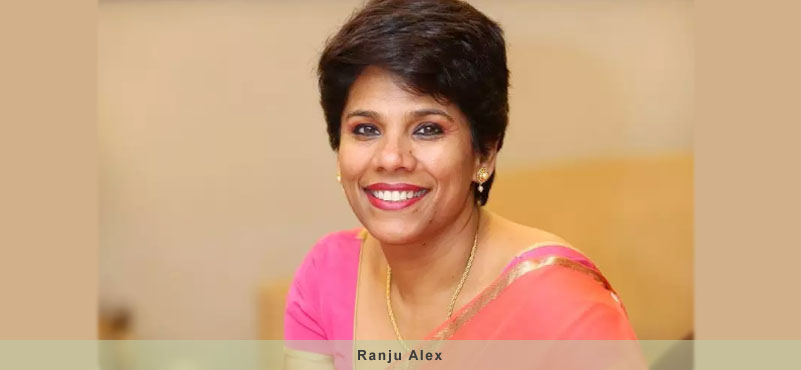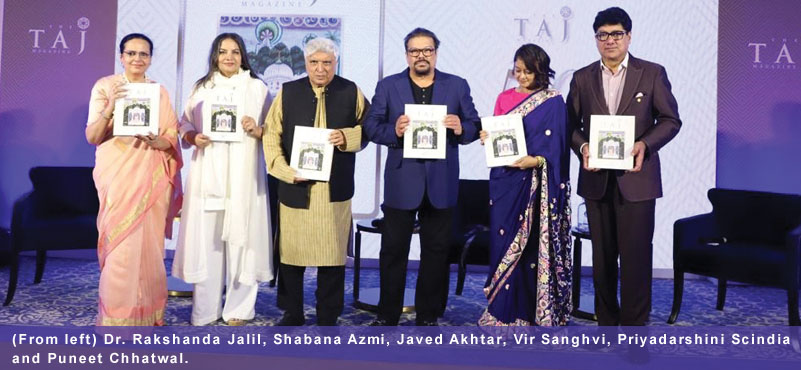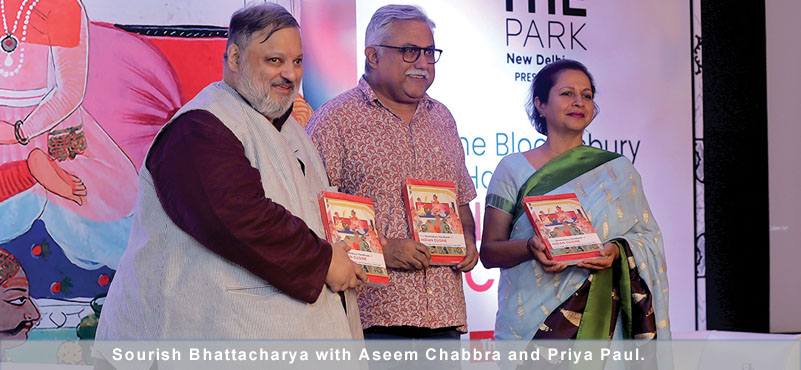Jean-Michel Casse, Senior Vice President – Operations, AccorHotels India region shares some of the trends in hospitality business with our readers. Also, how the group is adapting to these trends in their own brands for better exploitation of business opportunities.
 In an age of digital disruption, the rise of a new generation of savvy consumers, proliferation of newer brands and an increasingly competitive landscape, hotel groups need to move with agility and embrace a new level of dynamism to stay relevant. Continual evolution is mandatory to be able to meet with changing preferences of today’s customers. At AccorHotels, we work hard to be innovative and constantly reinvent our brand portfolio concepts to stay ahead of the curve. With nearly 50 years of know-how and expertise, we are committed to building the world’s most enviable collection of brands in the most powerful emerging markets, making our guests ‘feel welcome’ at each of over 3,900 properties spanning 17 brands.
In an age of digital disruption, the rise of a new generation of savvy consumers, proliferation of newer brands and an increasingly competitive landscape, hotel groups need to move with agility and embrace a new level of dynamism to stay relevant. Continual evolution is mandatory to be able to meet with changing preferences of today’s customers. At AccorHotels, we work hard to be innovative and constantly reinvent our brand portfolio concepts to stay ahead of the curve. With nearly 50 years of know-how and expertise, we are committed to building the world’s most enviable collection of brands in the most powerful emerging markets, making our guests ‘feel welcome’ at each of over 3,900 properties spanning 17 brands.
Some of the tectonic shifts pushing our industry to newer boundaries range from the rise of the millennial traveller as the dominant consumer group in coming years, increasing usage on mobile devices & apps for more personalised hotel guest services and newer trends in food and beverage. These forces are driving hoteliers to rethink the way they do business. It is important to act now, and as Sebastien Bazin, Chairman and Chief Executive Officer, AccorHotels says, “AccorHotels is not going to be a spectator of its own life. We are an actor.”
Rise of the millennials
For a long time, collective consciousness has been preoccupied with the impact of the baby boomers and Generation X, but a new force is coming into focus. While not as copious, millennials are now more vital to today’s workforce than any other demographic and according to industry estimates, may be the largest spenders (on or at hotels) as soon as 2017. What does that mean for hoteliers? For starters, hotels need to define their strategies based on this demographic group’s personality traits and habits – they travel a lot; are early adopters of technology; like personalized interactions and are spontaneous. In fact, there has never been a demographic that is more connected, digitally savvy and demanding, wanting contemporary design, high quality amenities, smart technology and locally inspired ambience all wrapped into a single hotel experience. Consequently, hotels will want to please them with easy check-in and gourmet dining experiences at reasonable prices. In return, satisfied millennials will actively promote their businesses on social media channels (they value experiences, are eager and curious to the world). Our brands meet the needs of millennials by being quirky, playful and fashionable. In India, we are soon launching ibis Styles in Goa, an international economy hotel brand with a strong personality and outstanding design features. Characterised by lively colours, fun interiors and upbeat atmosphere, ibis Styles offers the right environment to appeal to millennials. Simplicity, interactivity, quality and conviviality are the brand’s core values. Everything has been designed to delight our customers, to be moving and to arouse their senses. As real homes-away-from-home, our hotels boast convivial and comfortable areas that invite guests to enjoy and exchange, thus promoting social interaction.
Influx of technology
Guests today are self-sufficient, tech-savvy travellers who are comfortable using apps or mobile websites. From buying flight tickets and booking a hotel room to hailing a ride and checking-in, it’s all possible with a click of a button. Hotels need to make sure their offerings are up-to-date and user-friendly, leveraging the latest in technology. From mobile check-ins to digital concierge services, the possibilities are endless. However, it is important to not let technology push aside the most important ingredient of a memorable stay experience –thoughtfulness and the human touch (that’s never going to change). For example, the AccorHotels mobile app offers an enriched experience at every stage of the customer journey. Two days before arrival, we can let you know your room number, and then when you land, we tell you how to get to the hotel. When you arrive at the hotel, your key is ready. However, while technology permits a digital check-in, we still insist on an employee interface. That’s because we believe in establishing an emotional connect and extending an experience. We need to listen to our guests, and we use technology to allow for more time to do that, instead of doing away with physical contact. This is exactly how we envision our digital transformation strategy playing out.
Knowing customers better
Digital technology is putting customer relationships in the spotlight: customers are more and more connected, find out what other customers have to say before deciding where to stay, and are sharing their experience with a constantly growing audience. According to industry estimates, before booking a room, 95 percent of customers check other guests’ insights online. Therefore, listening to customers and actively providing feedback is becoming vital. For every hospitality player, it is imperative to listen to customers and to learn more about them, to constantly improve the quality of the service they provide, to bring customers more appealing and tailored deals, to welcome them with a personal touch, and to stay a step ahead of their expectations. Our Voice of the Guest (VOG) program is a solid step in that direction. The customized online reputation management platform centralizes all customer feedback shared across the social web, and displays it in a clear and intuitive interface, breaking down an analysis of the content into semantic categories (room, food, service, WiFi, etc.) in more than 19 languages, helping us enhance our customers’ experiences and, more importantly, add an even more personal touch to the service we provide them with.
Disruption in Food and Beverage
It was a longstanding belief that hotels are late adopters of F&B trends. That meals are only about menus. But with the changing tastes of diners, these beliefs are making way for a whole new approach to F&B. Restaurants, bars and coffee shops are no longer just about food, but also about the experiences – networking, socialising and getting things done. AccorHotels is leading the change by converting our F&B outlets into “places to meet”, avenues where guests, whether they are staying with us or not, can socialise, eat and drink. We are treating them more like “living spaces” for our active and urban clientele, breaking the traditional codes of dining. The Connectivity Lounge at Pullman for example and the Gourmet Bar at Novotel and finally the Hub at ibis are all examples of this. Goes without saying that our talented chefs are focusing on avant-garde F&B menus embracing the best of what’s happening in the gourmet world.




































